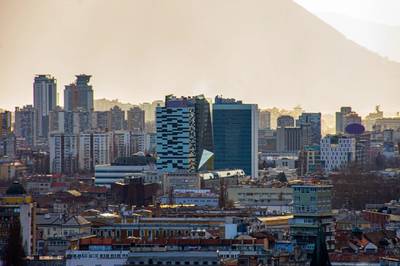EU Energy Watchdog Sanctions Bosnia over Non-compliance with Rules
The European Union's energy watchdog has extended sanctions against Bosnia for another two years over the Balkan country's failure to comply with the body's gas and electricity sector regulations.
Bosnia has been sanctioned for much of the period since 2015 due to its persistent failure to amend legislation in accordance with the Second Energy Package in the gas sector, the Sulphur in Fuels Directive, and the Third Energy Package in both electricity and gas.
"Bosnia and Herzegovina will not participate in the decision-making on matters of budget and enforcement for a period of two years, unless it rectifies the breaches in question in the meantime," the Energy Community said on its web page on Monday.
Energy Community officials could not be reached for further comment.
The international body, established by the EU and nine aspiring member states to extend the bloc's energy policy to would-be members, has long urged Bosnia to pass a state gas law to comply with the bloc's energy regulations.
The country's rival ethnic leaders have also blocked the passage of a draft state law on a single power market, transmission and regulation, and a complementary law on the establishment of a transmission system operator for electricity, the body said.
Bosnia's two autonomous regions - the Serb Republic and the Bosniak-Croat Federation which are linked via a weak central government - have their own laws regulating electricity production, distribution, supply and trading but there is no energy ministry at the state level.
Since the 1992-95 Bosnian war, policymaking has been hostage to a complex system of power-sharing, based on ethnic quotas, slowing the adoption of laws and regulations needed for the country to catch up with the European mainstream.
The Bosnian Serbs insist on maintaining their broad autonomy and strongly oppose any future transfer of power to the state.
Bosnia has also failed to stop the use of heavy fuel oils and gas oils where their sulphur content exceeds quantities regulated by the body's directives on the whole territory, the watchdog said.
(Reporting by Daria Sito-Sucic; Editing by Aleksandar Vasovic and Kirsten Donovan)

